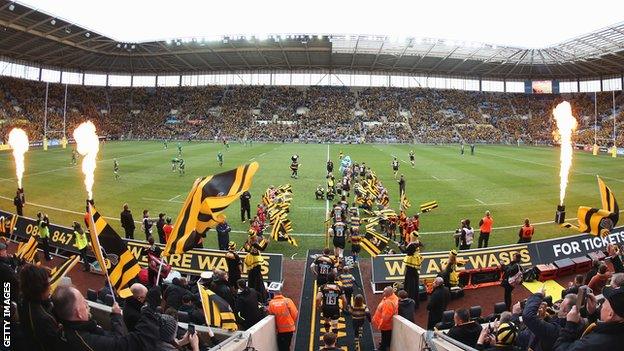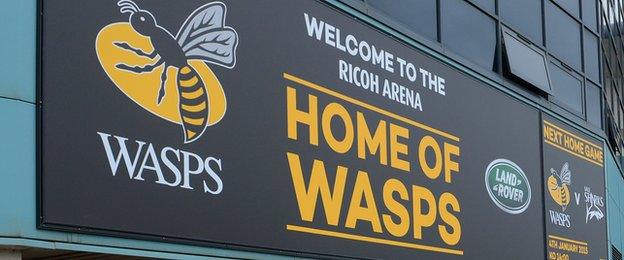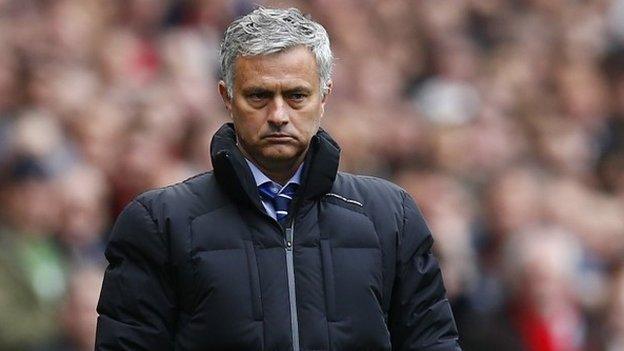Wasps to become richest rugby club in the world, says chief
- Published

Wasps moved into their new Ricoh Arena home at the end of 2014
Wasps say they are on course to become the richest rugby club in the world after announcing their latest financial initiative.
On Monday they will become the first sports club to launch a retail bond listed on the London Stock Exchange, which is expected to raise up to £35m.
Wasps are also set to pass French giants Toulouse in terms of revenue.
"We expect to be in that position either at end of this season or next season," said Wasps' David Armstrong.
The big rise in revenue is a result of Wasps, who beat Exeter on Sunday to consolidate sixth place in the Premiership, buying the Ricoh Arena, in Coventry, and moving from High Wycombe to play in the Midlands.
Speaking to BBC Radio 5 live, the Wasps chief executive added: "We were previously the second-lowest revenue-generating club in Premiership rugby. We are now the second highest in Europe.

The Ricoh has a 32,000-seater stadium as well as facilities including a casino and hotel
"In terms of size of revenue, we will overtake Toulouse in the next few months. We are in a very strong position financially."
Armstrong says the bond will "restructure the balance sheet" and "put the club on a much firmer financial footing going forward", while "a large part" of the money raised will be spent on the rugby side of the business.
Wasps are on the verge of signing another big money "marquee" player, as well as investing in their backroom and conditioning staff.
"It's about pushing forward, contending in the Premiership, contending in Europe. And we'll see how we get on," continued Armstrong.
"But certainly we are a club with ambitions to be at the top level both domestically and in Europe every season."
While most Premiership clubs rely on broadcast revenue for the bulk of their income, the range of facilities at the Ricoh Arena means Wasps are breaking the mould, according to Armstrong.
The Ricoh, also home of League One side Coventry City, includes a 32,600-seater stadium, a concert venue, a casino, two restaurants and a hotel.
"This is creating a new financial model in rugby," Armstrong added.
"The old model of either owning a purpose-built rugby stadium, or even being a tenant in somebody else's stadium, has now been superseded by what we've done.
"I'm sure lots of other clubs will look at that, and find their own ways to try and emulate that - there are some very strong clubs in England - but for now we have set the bar much higher."
- Attribution
- Published27 April 2015

- Published26 April 2015

- Published26 April 2015

- Published26 April 2015

- Published14 September 2016

- Published15 February 2019
